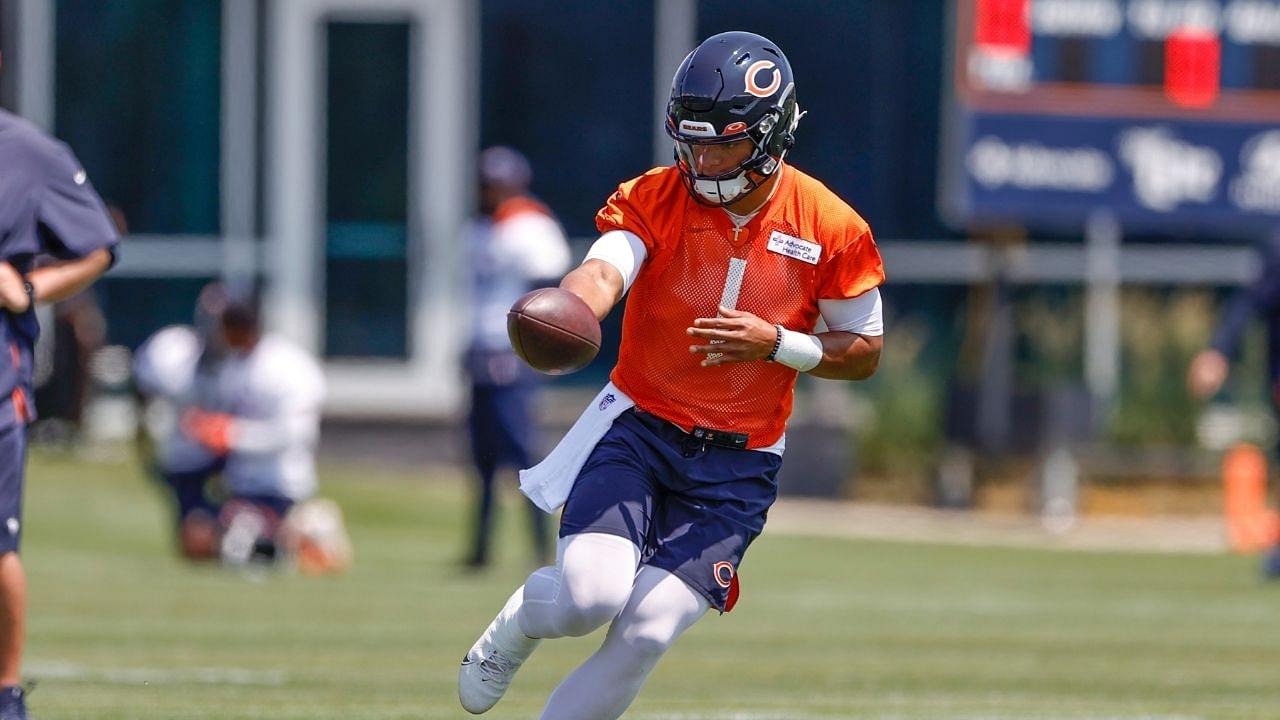Justin Fields finally signed his rookie deal with the Chicago Bears, to make him their QB for at least the next 4 years. And with that done, how do NFL rookie contracts work?
Advertisement
The Chicago Bears traded four picks – including their first- and fourth-round picks this year and first- and fifth-round picks next year – to move up from No. 20 and select Fields at No. 11 overall. And during mandatory minicamp, the Bears agreed to terms with Justin Fields on a four-year $18.9 million contract. This includes an $11.1 million signing bonus.
The #Bears agreed to terms with first-round pick Justin Fields on a fully guaranteed four-year, $18,871,952 contract that includes a $11,085,056 signing bonus, per source.
— Tom Pelissero (@TomPelissero) June 10, 2021
How do Rookie contracts in the NFL work?
The 2011 CBA tightened the rookie salary cap regulations and virtually eliminated rookie holdouts. Which made it easier for teams to move on from rookie QB’s. Rookie salaries vary from one draft to another and are tied to the salary cap of the overall team.
All draft picks sign contracts four years. And the rookie salary cap is basically a salary cap within the team’s overall cap. All drafted rookies must fit under the rookie salary cap. Teams have maximum and minimum amounts that can be spent on their picks based on draft position. The minimum base salary is $660,000 in 2021.
If the signing bonus is $10 million, that means that $2.5 million is counted against the cap for each of the four years. The annual increase in each of the 4 years of a deal is limited to 25% of the first-year cap number. To illustrate this concept, 2020 fourth-overall pick Andrew Thomas’s cap numbers were limited to a $1,470,254 increase in each year of his deal because his first-year cap number was $5,881,016.
Teams have the option with their first-round draft picks for the fifth year. This must be exercised after the third year of the deal. The period for exercising fifth-year options begins after a player’s third NFL regular season ends (Jan. 10, 2022, with the 2019 first-round picks). These options must be picked up prior to May 3.
Salaries for rookie contracts can be negotiated only after their 3rd season finishes. Rookie contracts are rarely present in rookie contracts today. However, creativity and structural advantages can still come into rookie cap negotiations in a variety of ways. Payments of signing bonuses are key in this regard. GM’s prefer to spread payments out over the course of the contract tenure. And both owners and GM’s prefer to make bonus payments as their monetary value from revenue comes in.
Participating in a minimum 75 percent of game snaps in two of their 3 seasons. Or an average of at least 50 percent playing time in all of their 3 seasons sets the fifth year salary at the average of the third through 20th highest salaries at a player’s position. But for the picks that don’t fall in this category, the fifth-year salary is the average of the third through 25th highest salaries at a player’s position.






